Japan PM Abe appoints China-friendly lawmakers
Updated: 2014-09-04 09:20
(Agencies)
|
||||||||
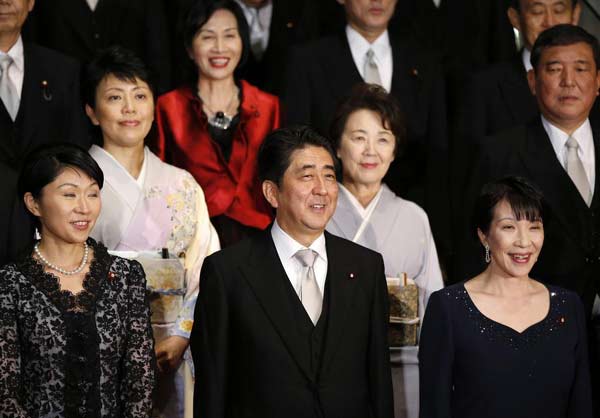 |
|
Japan's Prime Minister Shinzo Abe (front C) smiles alongside female cabinet ministers as they prepare for a photo session at his official residence in Tokyo, Sept 3, 2014. [Photo/Agencies] |
Mixed message on women?
Abe has signalled that he hopes to meet Chinese leader Xi at an Asia-Pacific leaders gathering in Beijing in November.
"Japan and China both have responsibility for international peace and prosperity. It is vital to develop a forward-looking, cooperative relationship on common issues confronting international society," Suga told a news conference as China marked the anniversary of its World War Two victory over Japan.
Former vice-defence minister Akinori Eto takes over from moderate conservative Itsunori Onodera as defence minister. He also assumes a new post responsible for national security reform as Abe pushes ahead with efforts to ease the limits of Japan's pacifist constitution on its military.
The little-known Eto, who is close to Abe, belongs to a group of lawmakers advocating visits to Tokyo's controversial Yasukuni Shrine for war dead, although his office said he has not visited the shrine this year.
Abe's pilgrimage there in December outraged China, where the shrine is viewed as a symbol of Japan's past militarism. Abe has since avoided visiting the shrine in person.
Eto has policy expertise, political analyst Ito said, but added: "He will not have a lot of influence. The message from the appointments to the two party posts is stronger."
Abe has not revamped his cabinet since returning to office in December 2012, a record for a post-World War Two premier. That means dozens of veterans in his male-dominated LDP were eager to be tapped for a post.
Abe, who has made a push to get more women into the workforce a linchpin of his "Abenomics" growth plan, appointed five female ministers, equalling a record set by Junichiro Koizimi in 2001.
Yuko Obuchi, 40, daughter of a former prime minister and mother of two, takes over as minister of trade and industry, while LDP policy chief Sanae Takaichi, 53, an Abe ally and former minister for gender equality in his first cabinet in 2006, was named minister of internal affairs and communications.
His message, however, was somewhat mixed since some of the appointees, including Haruko Arimura, new minister in charge of women's issues and the falling birthrate, are known for promoting highly conservative, traditional family values.
Abe, who surged to power promising to revive the economy and bolster Japan's security stance, has seen his support slip to around 50 percent, still high for a Japanese premier but off early peaks of around 60 percent.
- Japan Cabinet reshuffle prioritizes economy
- Japan to target Antarctic's minke whale despite ban
- Modi's Japan visit a tale of promises
- Modi's Japan visit a tale of promises
- Xi marks victory against Japan in World War II
- Japan reshuffles cabinet, introducing 12 new faces
- Japan's ruling LDP unveils new executive lineup
- Japan, China seek to hold summit at APEC in November - media
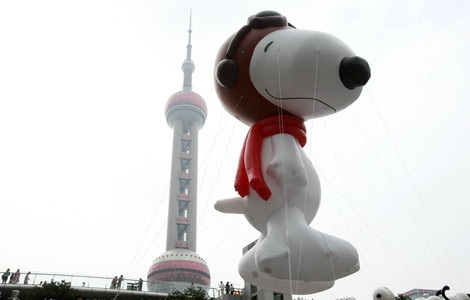
 Snoopy celebrates 65th anniversary in Shanghai
Snoopy celebrates 65th anniversary in Shanghai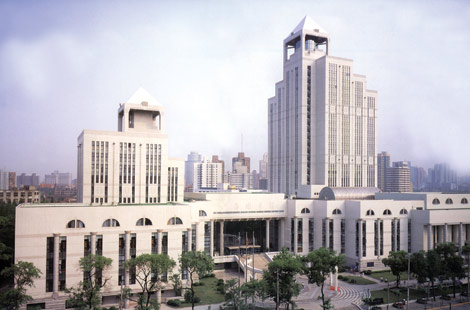
 Shanghai Library joins global database
Shanghai Library joins global database
 Lives risked daily in the shadow of active volcanoes
Lives risked daily in the shadow of active volcanoes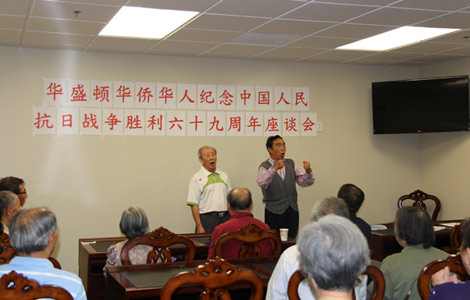
 History hailed
History hailed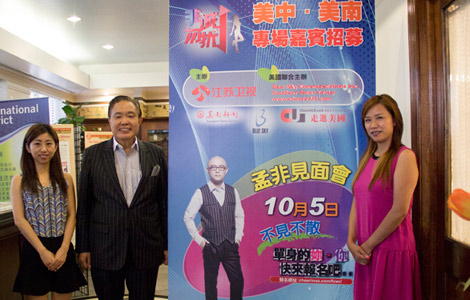
 Chinese TV dating comes to Houston
Chinese TV dating comes to Houston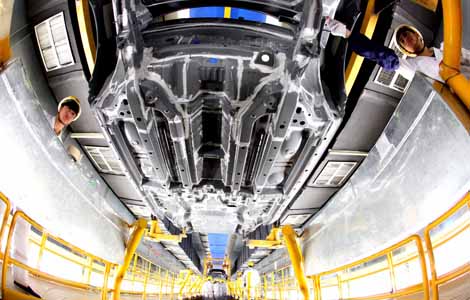
 China-made electric cars heading to US
China-made electric cars heading to US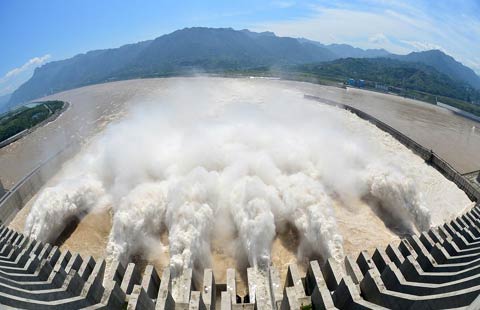
 Three Gorges Dam discharges flood water
Three Gorges Dam discharges flood water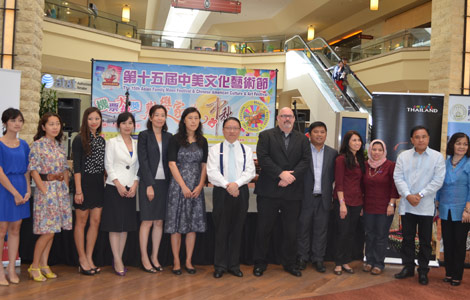
 Moon Festival not just for Chinese
Moon Festival not just for Chinese
Most Viewed
Editor's Picks

|

|

|

|

|

|
Today's Top News
US to pave way for Obama's China visit
Wal-Mart seeks China growth
Firms fret over monopoly probes
Chinese TV dating comes to Houston
Joint forces to curb illegal abortions
Can HK afford a credit rating cut?
Hotline to help out Chinese overseas
Minorities outnumber whites in US public schools
US Weekly

|

|







